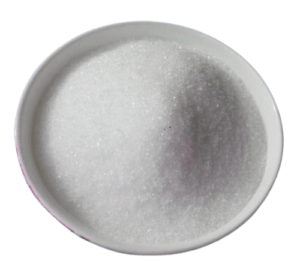Molecular Weight: 158.17 g/mol
CAS Number: 62-54-4
Appearance: White crystalline powder or solid
Odor: Odorless
Solubility: Soluble in water, insoluble in ethanol and ether
Assay: 99% minimum
pH Value: 7.0-9.0
Heavy Metals: 10 ppm maximum
Loss on Drying: 7.0% maximum
Melting Point: 160-170°C
Boiling Point: Decomposes before boiling
Storage: Keep in a dry place at room temperature, away from sunlight and heat sources
 Use as a firming agent: Calcium Acetate is commonly used in cheese production to increase firmness and improve the stability of the cheese curd during aging. It can also be used in jams, jellies, and other fruit products to promote firmness and prevent syneresis (the separation of liquid from a gel or jelly).
Use as a firming agent: Calcium Acetate is commonly used in cheese production to increase firmness and improve the stability of the cheese curd during aging. It can also be used in jams, jellies, and other fruit products to promote firmness and prevent syneresis (the separation of liquid from a gel or jelly).
Use as a stabilizer: Calcium Acetate is widely used as a stabilizer in a variety of food and beverage products, including sports drinks, soft drinks, and nutritional supplements. Its ability to stabilize emulsions, prevent crystal formation, and reduce water activity makes it an ideal stabilizing agent.
Use as a thickener: In addition to its use as a firming agent and stabilizer, Calcium Acetate can also be used as a thickening agent in various food products such as salad dressings, soups, and sauces. Its thickening properties come from its ability to absorb water and form a gel-like substance.
Use as a source of calcium: As mentioned before, Calcium Acetate is commonly used as a calcium supplement in dietary supplements and multivitamins due to its high calcium content and bioavailability.
Use as a leavening agent in baked goods: When combined with baking soda, Calcium Acetate releases carbon dioxide gas, causing the dough or batter to rise during baking. This process gives baked goods a lighter texture and improves their overall quality.
Calcium Acetate has been used as a food additive for many years and is generally recognized as safe (GRAS) by the United States Food and Drug Administration (FDA). The additive is commonly used to extend the shelf life of certain foods and prevent spoilage.





